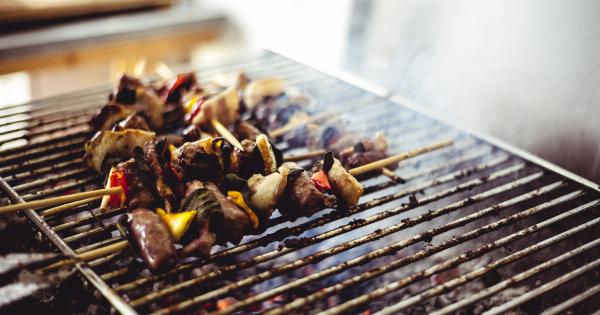Gastroesophageal reflux disease (GERD) is a chronic digestive disorder that occurs when stomach acid or bile flows back into the esophagus, causing irritation and discomfort.
While many people associate GERD with certain foods, such as spicy or fatty dishes, the summer season also brings its own set of challenges for those with this condition. Some popular summer foods can exacerbate GERD symptoms and should be avoided or consumed in moderation. In this article, we will explore the top summer foods to avoid for GERD sufferers to help maintain better digestive health during the warmer months.
1. Citrus Fruits
The refreshing taste of citrus fruits like oranges, lemons, and grapefruits makes them a popular choice during summer. However, the high acidity of these fruits can trigger GERD symptoms, including heartburn and acid reflux.
It is advisable for GERD sufferers to limit their intake of citrus fruits or opt for less acidic alternatives, such as melons or berries.
2. Tomatoes
Summertime brings an abundance of tomatoes that are used in various dishes like salads, salsas, and even on burgers. Unfortunately, tomatoes are highly acidic and can worsen GERD symptoms.
Individuals with GERD should avoid consuming raw tomatoes or opt for cooked or processed tomato products with reduced acidity.
3. Spicy Foods
Spicy foods are notorious triggers for GERD symptoms. Summer often means indulging in barbecues and outdoor grilling, which can involve spicy marinades, hot sauces, and peppers. These foods can irritate the esophagus and lead to heartburn and acid reflux.
It is best for GERD sufferers to avoid or minimize their consumption of spicy foods during the summer months.
4. Carbonated Beverages
Cracking open a cold, carbonated beverage on a hot summer day may be tempting, but it can be problematic for those with GERD.
Carbonated drinks, including soda, sparkling water, and even carbonated alcoholic beverages, can cause bloating, belching, and increased acid production, leading to discomfort for GERD sufferers. Opting for non-carbonated beverages like water, herbal tea, or diluted fruit juices is a better choice.
5. Mint
Mint is a common ingredient used in summer drinks and desserts. Unfortunately, it can relax the lower esophageal sphincter (LES) muscle, which is responsible for preventing stomach acid from flowing back into the esophagus.
This relaxation can aggravate GERD symptoms. GERD sufferers should avoid consuming mint-flavored or mint-infused foods and drinks such as mint iced tea or mint chocolate chip ice cream.
6. Fried and Fatty Foods
Summer often means indulging in fried foods like French fries, fried chicken, and fried seafood, as well as fatty cuts of meat. These high-fat foods can slow down digestion, increase pressure on the lower esophageal sphincter, and cause acid reflux.
GERD sufferers should opt for grilled, baked, or steamed alternatives and choose leaner meats to reduce the risk of triggering symptoms.
7. Alcohol
While enjoying an occasional drink may not be harmful, excessive alcohol consumption can worsen GERD symptoms. Alcoholic beverages such as beer, wine, and cocktails can relax the LES muscle, leading to acid reflux.
It is best for GERD sufferers to limit their alcohol intake and choose less acidic options like light beers or diluted drinks.
8. Ice Cream
The summer heat often calls for a cool and refreshing treat like ice cream. However, the high fat content of ice cream, along with its potential for triggering reflux, can be troublesome for GERD sufferers.
Opting for lower-fat frozen yogurt or sorbet can be a suitable alternative for those craving a cold dessert without exacerbating their symptoms.
9. Barbecue and Tomato-based Sauces
Summer gatherings often involve indulging in grilled meats slathered in barbecue or tomato-based sauces. Unfortunately, these sauces are typically high in acidity and can lead to heartburn and reflux.
GERD sufferers should consider using low-acid alternatives or consuming smaller portions of these sauces to avoid triggering symptoms.
10. Onions
Onions are a staple ingredient in many summer dishes, such as salads, sandwiches, and grilled meats. However, they can cause gas and bloating, leading to increased pressure on the LES and potential acid reflux for individuals with GERD.
Reducing onion intake or opting for milder varieties, such as scallions, can help minimize symptoms.






























